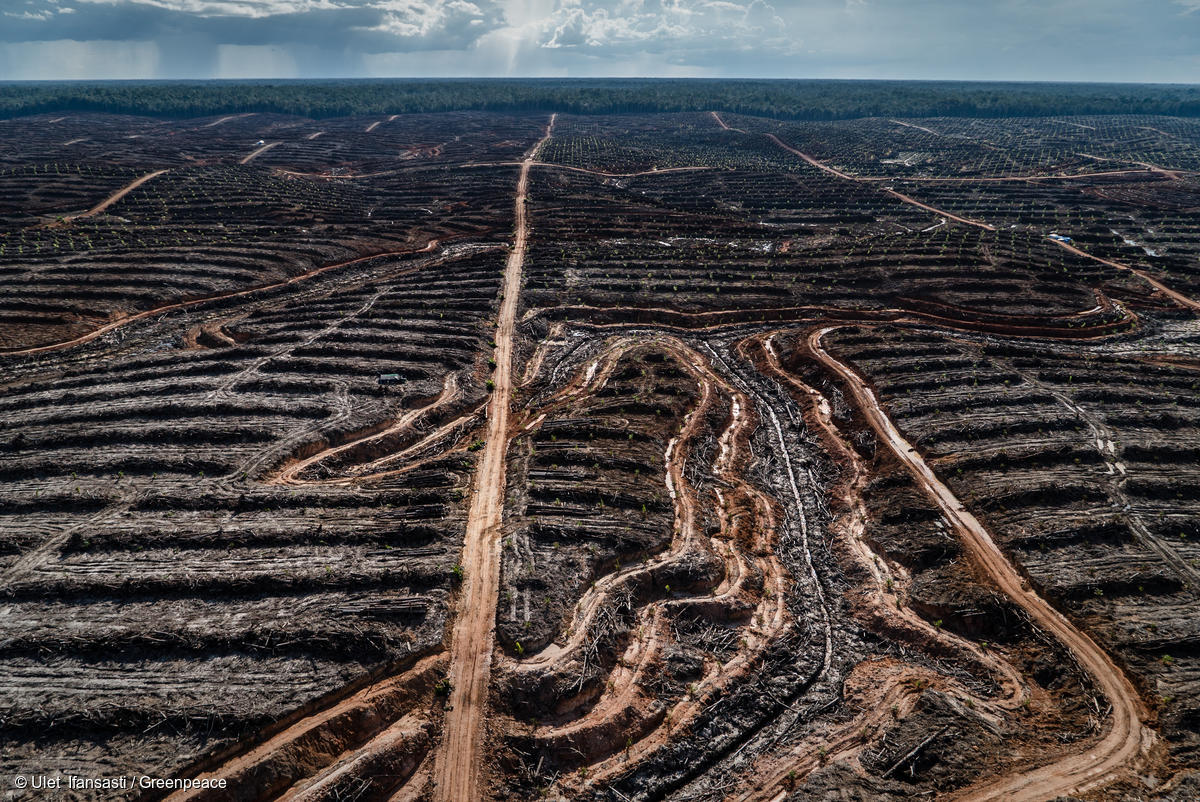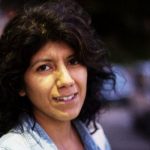A few weeks ago we reported that leading consumer companies like Unilever, Nestle and PepsiCo made a pledge that by 2020 they would eliminate deforestation from their palm oil supply chains. However, with the release of the Moment of Truth report, we’ve learned that consumer companies are not on track to meet these commitments.
Last week, Greenpeace released shocking footage of clear-cutting in Papua, Indonesia that illustrates just how pervasive the problem has become for consumer companies and palm oil traders. Our satellite analysis estimates a clearance of nearly 4,000 hectares of rainforest — an area almost half the size of Paris.

Greenpeace investigation uncovers massive deforestation as Indonesian Government minister arrives in EU to defend palm oil industry.
The clearance is seen in PT Megakarya Jaya Raya (PT MJR), a palm oil concession controlled by the Hayel Saeed Anam Group (HSA), a multinational company that is headquartered in Yemen. The forest clearance we exposed includes an area that is zoned for protection by the Indonesian government as a result of the devastating fires of 2015.
Papua represents one of the last vestiges of virgin rainforest in the world. Within those forests there are over 600 species of exotics birds, the tree kangaroo, and many more species that have yet to be discovered. To sum it up: Papua is home to 50% of Indonesia’s unique wildlife and plant species.

A hornbill flies through the trees on the river Digul in Southern Papua.
Now that we have supplier and mill data out in the public domain, we were able to confirm that some of the world’s best-known brands are still doing business with palm oil suppliers linked to rainforest destruction.
We caught Mars, Nestlé, PepsiCo, and Unilever linked to the HSA group’s concessions.
All of these consumer brands have published ‘no deforestation, no peat, no exploitation’ (NDPE) policies that should prohibit this from happening in the first place, and they are now reneging on an eight-year-old commitment. We are less than 2 years away from 2020, and we are still seeing high rates of forest loss coupled with fires, haze pollution, and adverse health effects as a result of reckless industry practices.
In fact, it has gotten so bad that between 2012 and 2015, Indonesia lost forests at the rate of 146 soccer fields lost every hour — that’s one soccer field every 25 seconds.

Documentation of landcover, forest clearance and plantation development in PT Megakarya Jaya Raya (PT MJR) oil palm concession, part of the Hayel Saeed Anam group which has a number of palm oil related interests including Pacific Inter-Link which controls HSA’s palm oil refining and trading interests.
The problem is that consumer companies are lax on enforcing these standards. Greenpeace wants companies to keep their promises, which means that by no later than 2020 they must use palm oil from responsible growers that are protecting the rainforests, and stop violating community and worker rights.
Palm oil’s reach is not going away anytime soon. it is found in just about everything — from cookies, chips, and bread, to wide a range of personal care products. Palm oil is part of our lives, but rainforest destruction and the cascading human health effects from the burning and clearing of forests shouldn’t be. Nor should the welfare of workers and neighboring communities who are violated at the cost of producing this vegetable oil.

Landcover, forest clearance and plantation development in PT Megakarya Jaya Raya (PT MJR) palm oil concession.
What happens to Indonesia’s forest matters to the rest of the world — the aggressive burning and clearing of forests in Indonesia contribute to 12% of all global carbon emissions.
Help us hold these corporations accountable; share the video to let them know we are watching, and that you are too!
We’ve been telling you about several commitments to end sourcing of #palmoil from companies that destroy rainforests, but we've discovered deforestation half the size of Paris, happening right now in Papua. The company responsible supplies PepsiCo,Nestlé,Mars and Unilever, who are failing to meet their promise to stop buying palm oil at the cost of forest destruction. Help us spread the word. #WeAreWatching #EndDeforestation
Posted by Greenpeace USA on Friday, April 27, 2018



